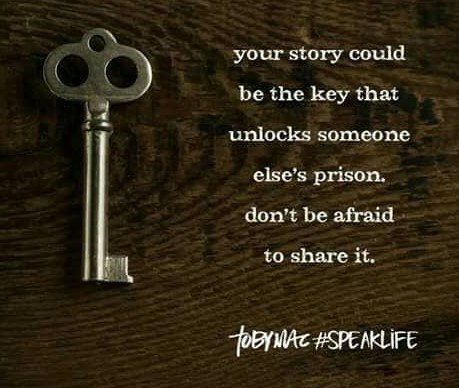Giving Them Over Is Not Giving Up

ALERT! This is probably the most important page in the website section on mental illness.
Detachment is a psychology term that means means cutting emotional and sometimes physical ties to a person who causes you severe and ongoing anxiety. Detachment is often advised when you have an adult family member or loved one who is addicted or mentally ill. From time to time, distraught people visit our NAMI support group meeting seeking a quick-fix for their (adult) mentally ill family member. It's clear to us that nothing will get better until they stop enabling and detach from the situation. But we usually don't say anything because they are not ready to listen. And because we can't give them a quick-fix, many never come back.
Both NAMI and Al-Anon teach their members that you cannot change another person; the only person you can change is yourself. I learned it only after years of misguided love and a misplaced sense of responsibility towards my mentally ill loved ones (a spouse and two children, one of whom became a suicide . . . all attributable to bad genetics). When I asked about our failed marriage the Lord said,
"Just because she fails doesn't mean you have to fail."
When I complained that life was hard He replied,
"I never asked you to fix your wife!"
I remember the time and place where I finally hit the wall and told God, "I've done everything I can think of and everything that any friend, pastor, or counselor has ever suggested. But none of it has done any good. It's not that I'm giving up. Rather, it's that there's nothing left to try. So as fully as I know how, I am placing this matter into Your hands." I was surprised to hear Holy Spirit reply,
"It's about time you learned to trust God for something really big!"
At a later time the Lord said,
"All your worry and concern has accomplished not a single thing. It has only gotten in the way of what I want to do."
He later explained about detachment.
"It was just as much about protecting you as it was about helping her."
Is It Time to Detach? - There comes a point where you must stop trying to help, advise, nag, confront, enable, or otherwise attempt to rescue your mentally ill loved-one, or to clean up after them, or to try to change their behavior. This is the point where you need to step back and allow them to bear the full consequences of their bad decisions. God is a lot more concerned about them than you are. And only He knows exactly how their malfunctioning brain operates and exactly what they need. In addition, you need to remember that God has a plan for your life. The Devil will tempt you to abandon God's plan and make your mentally ill loved one(s) your primary concern. Don't fall for it! Put God's things first and place your mentally ill loved one(s) into His capable hands. This is the same way that we need to deal with our unsaved children and grandchildren . . . and particularly so for those who are on a bad trajectory. Never stop praying! But at the same time, "Let go and Let God!"
When I finally made the decision to detach, it initially felt like I was abandoning my mentally ill loved-ones. But the Lord told me two things:
"If you allow yourself to become entangled in their 'drama' again, you will be absolutely no use to Me!"
"Giving them over to Me is not giving up; it's the best thing you can do - for both them and yourself."
It took me several months to break old habits and transition to this better way of life. Once there I inwardly exclaimed, "What a fool I've been! I should've done this years ago!" Now I am freer to live the life that God planned for me, without the never-ending "drama" of mentally ill family members who will not seek treatment. I don't know what God will do with them. But I rest in the assurance that He will be completely fair in all His dealings with them.